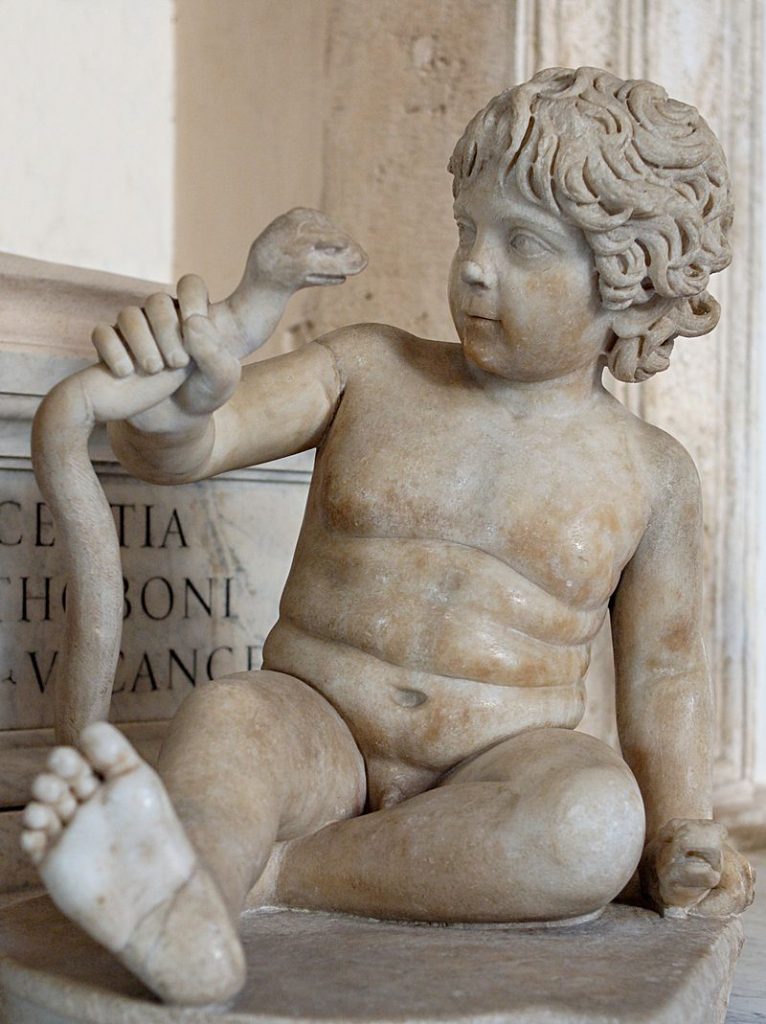After an embarrassingly long time, I’ve finished the first part – a decent 270 pages – of Bulfinch’s Mythology. This part covers pretty much all of the Greek mythology, and worthy of a tome in and of itself. I’d been putting off reading it for some time, and even when I did begin, I did so at a leisurely pace. Once I got into it though, I was hooked. There’s something compelling about mythology – and in this post, I’m going to try and figure out precisely what that is.
Firstly, I should clarify that when I notice something is compelling, I immediately take the opinion that there must be something deeper. With mythology in particular, even if you don’t find it compelling, there’s no doubt an entire civilisation (several, actually) did. I find it too simplistic and hand-wavy to say the Greeks, Persians, Romans, etc… were all simply primitive people, trying to figure out the world through fanciful tales.
Allegory
Greek myths are ridden with allegories, some hidden, some overt enough that a five-year-old could figure it out. Indeed the most famous ones largely allegorical – the story of Icarus, and of Narcissus and Echo, jump to mind. The former being about youthful, arrogant ambition; and the latter a short tale about narcissism taken to its extreme. The poetic and fantastical elements in such myths add colour and flavour to the tales which in its own right may make such allegorical stories compelling, but I think the most interesting are those in which the true meaning is hidden below several layers.

Hercules, for example, is a profoundly complex character. Everyone probably has a rough image based on Schwarzenegger’s portrayal. But Hercules was more than just muscle and bravery. The character displays an indomitable will and righteous arrogance. He’s a flawed character and taken in its entirety, Hercules’ story is a tragedy. Beginning with the death of his family at his own misguided hand, journeying through an arduous set of twelve trials, and ending with a self-immolation.
Humanity: Virtue and Vices
The Greek Pantheon, and the auxiliary Gods, Titans and mythical beasts can, for the most part, be understood as personifications of aspects of humanity, and/or of nature. Zeus and Hera; the king and queen of the Gods are funnily enough the most complex ones, and I may devote a whole blog to their strange relationship (which is referenced upon in almost all of Greek myths, including the famous Iliad which I’m currently reading). Other than the royal duo, most gods map pretty straightforwardly onto traits, virtues and vices. I’ll just note a few down below with what I’ve understood to be their defining characteristics as examples:
- Athene – Pride & Wisdom
- Apollo – Accomplishment
- Ares – Rage and War
- Artemis – Man as the Hunter
- Hephaestus – Daft but Skilled
- Aphrodite – Love (Eros)
These are extreme simplifications, and there are overlaps in characteristics within stories. Each of the Greek Gods and Goddesses could easily (and probably do) have entire books about them. The cool thing about interpreting the Gods as archetypal representations of man’s virtues and vices is that it fits really neatly into the stories, and adds an enormous layer of depth when reading the interactions between humans and gods – which is, in my opinion, the most exciting parts of mythology.
Mythology and the Modern World
So, cool things aside, why bother reading mythology? I’ll offer a few points, building off what I’ve discussed thus far,
- Understanding the cultural context of our predecessors
- Appreciation of some of the most timeless pieces of literature
- Understanding connections and references made to such stories in more recent literature
I’d hope these three points are fairly straightforward, so I’m not going to dwell on them. The crucial fact for me, however, is the insight into humanity which these stories can provide. What, for example, does rage taken to its extreme look like? The stories of Achilles and Hercules explore this. Sure you could look at modern characters today, such as the Punisher (which recently came out on Netflix), but you miss the poetic linkages with other aspects of humanity. How about the relevance and importance of patronage, and lineage? Almost all Greek myths touch on this. Prometheus (a favourite of mine) is a story of the intellectual standing up against a higher power. The Iliad is about (amongst many things) anger, loyalty and pride. The story of Jason and the Argonauts is like a Greek version of the Avengers. And so on.
Some myths serve as a warning, saying subtly or not so subtly: don’t be like this, or this might happen. Other times, they offer visions of greatness which we can aspire to. Most of the time, it’s a strange mix of both.
-A
Leave a Reply